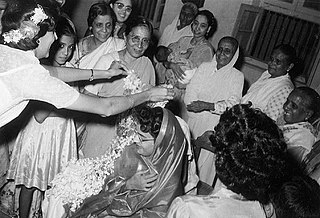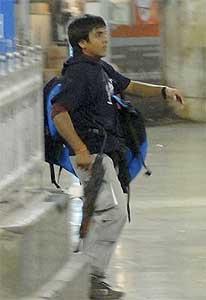Antisemitism is hostility to, prejudice towards, or discrimination against Jews. This sentiment is a form of racism, and a person who harbours it is called an antisemite. Though antisemitism is overwhelmingly perpetrated by non-Jews, it may occasionally be perpetrated by Jews in a phenomenon known as auto-antisemitism. Primarily, antisemitic tendencies may be motivated by negative sentiment towards Jews as a people or by negative sentiment towards Jews with regard to Judaism. In the former case, usually presented as racial antisemitism, a person's hostility is driven by the belief that Jews constitute a distinct race with inherent traits or characteristics that are repulsive or inferior to the preferred traits or characteristics within that person's society. In the latter case, known as religious antisemitism, a person's hostility is driven by their religion's perception of Jews and Judaism, typically encompassing doctrines of supersession that expect or demand Jews to turn away from Judaism and submit to the religion presenting itself as Judaism's successor faith—this is a common theme within the other Abrahamic religions. The development of racial and religious antisemitism has historically been encouraged by anti-Judaism, though the concept itself is distinct from antisemitism.
Antisemitism has increased greatly in the Arab world since the beginning of the 20th century, for several reasons: the dissolution and breakdown of the Ottoman Empire and traditional Islamic society; European influence, brought about by Western imperialism and Arab Christians; Nazi propaganda and relations between Nazi Germany and the Arab world; resentment over Jewish nationalism; the rise of Arab nationalism; and the widespread proliferation of anti-Jewish and anti-Zionist conspiracy theories.
Scholars have studied and debated Muslim attitudes towards Jews, as well as the treatment of Jews in Islamic thought and societies throughout the history of Islam. Parts of the Islamic literary sources give mention to certain Jewish groups present in the past or present, which has led to debates. Some of this overlaps with Islamic remarks on non-Muslim religious groups in general.
The history of antisemitism, defined as hostile actions or discrimination against Jews as a religious or ethnic group, goes back many centuries, with antisemitism being called "the longest hatred". Jerome Chanes identifies six stages in the historical development of antisemitism:
- Pre-Christian anti-Judaism in Ancient Greece and Rome which was primarily ethnic in nature
- Christian antisemitism in antiquity and the Middle Ages which was religious in nature and has extended into modern times
- Muslim antisemitism which was—at least in its classical form—nuanced, in that Jews were a protected class
- Political, social and economic antisemitism during the Enlightenment and post-Enlightenment Europe which laid the groundwork for racial antisemitism
- Racial antisemitism that arose in the 19th century and culminated in Nazism
- Contemporary antisemitism which has been labeled by some as the new antisemitism

Lashkar-e-Taiba is a Pakistan-based militant Islamist Salafi jihadist organisation. Described as one of Pakistan's "most powerful jihadi groups", it is most infamous outside Pakistan. The organisation's primary stated objective is to merge the whole of Kashmir with Pakistan. It was founded in 1985-6 by Hafiz Saeed, Zafar Iqbal Shehbaz Abdullah Azzam and several other Islamist mujahideen with funding from Osama bin Laden during the Soviet–Afghan War. It has been designated a terrorist group by numerous countries.
New antisemitism is the concept that a new form of antisemitism which developed in the late 20th and early 21st centuries, tends to manifest itself as anti-Zionism and criticism of the Israeli government. The concept is included in some definitions of antisemitism, such as the working definition of antisemitism and the 3D test of antisemitism. The concept dates to the early 1970s, although the identification of anti-Zionism with antisemitism has "long been de rigueur in Jewish communal and broader pro-Israel circles".
This is a list of countries where antisemitic sentiment has been experienced.

History of the Jews in Pakistan goes back to 1839 when Pakistan was part of British India. Various estimates suggest that there were about 1,000 to 2,500 Jews living in Karachi at the beginning of the 20th century, mostly comprising Iranian Jews and Bene Israel ; a substantial Jewish community lived in Rawalpindi, and a smaller community also lived in Peshawar.

Different opinions exist among historians regarding the extent of antisemitism in American history and how American antisemitism contrasted with its European counterpart. Earlier students of American Jewish life minimized the presence of antisemitism in the United States, which they considered a late and alien phenomenon that arose on the American scene in the late 19th century. More recently however, scholars have asserted that no period in American Jewish history was free from antisemitism. The debate about the significance of antisemitism during different periods of American history has continued to the present day.

The State of Israel and the Islamic Republic of Pakistan have never had formal diplomatic relations. In 1947, Pakistan voted against the United Nations Partition Plan for Palestine, and currently does not recognize Israeli sovereignty. Despite the Pakistani position on the Arab–Israeli conflict, there have been multiple instances of the two countries closely cooperating during events such as the Soviet–Afghan War and the Black September conflict. With regard to the Israeli–Palestinian conflict, Pakistan supports the Palestinian Arabs and endorses the two-state solution. The Pakistani government has maintained that it will not pursue a normalized relationship with Israel until the establishment of an independent Palestinian state within the pre-1967 borders and with East Jerusalem as the Palestinians' capital city. Nevertheless, with Turkey serving as their middle ground, Israel and Pakistan have used their embassies and consulates-general in the cities of Ankara and Istanbul to communicate and exchange necessary information with each other. In 2010, the Pakistani newspaper Dawn reported that Pakistan's Inter-Services Intelligence, following up on reports received in Washington, had gone through Ankara to pass on newly discovered information to Israel's Mossad about an upcoming terrorist attack in Mumbai, India, where a Jewish cultural centre was listed as a major target; this information first surfaced on WikiLeaks one year after the 2008 Mumbai attacks were carried out by Lashkar-e-Taiba, a Pakistan-based terrorist organization.
Antisemitism in contemporary Norway deals with antisemitic incidents and attitudes encountered by Jews, either individually or collectively, in Norway since World War II. The mainstream Norwegian political environment has strongly adopted a platform that rejects antisemitism. However, individuals may privately hold antisemitic views. Currently, there are about 1,400 Jews in Norway, in a population of 5.3 million.
Antisemitism —prejudice, hatred of, or discrimination against Jews— has experienced a long history of expression since the days of ancient civilizations, with most of it having originated in the Christian and pre-Christian civilizations of Europe.

The 2008 Mumbai attacks were a series of terrorist attacks that took place in November 2008, when 10 members of Lashkar-e-Taiba, a militant Islamist organisation from Pakistan, carried out 12 coordinated shooting and bombing attacks lasting four days across Mumbai. The attacks, which drew widespread global condemnation, began on Wednesday 26 November and lasted until Saturday 29 November 2008. A total of 175 people died, including nine of the attackers, with more than 300 injured.
Attribution of the 2008 Mumbai attacks were first made by the Indian authorities who said that the Mumbai attacks were directed by Lashkar-e-Taiba militants inside Pakistan. American intelligence agencies also agree with this attribution. Pakistan initially contested this attribution, but agreed this was the case on 7 January 2009. To back up its accusations, the Indian government supplied a dossier to Pakistan's high commission in Delhi. The Pakistan government dismissed the dossier as "not evidence," but also announced that it had detained over a hundred members of Jamaat-ud-Dawa, a charity linked with Lashkar-e-Taiba. In February 2009, Pakistan's Interior Minister Rehman Malik agreed that "some part of the conspiracy" did take place in Pakistan.

Mohammed Ajmal Amir Kasab was a Pakistani terrorist and a member of the Islamic terrorist organization Lashkar-e-Taiba through which he took part in the 2008 Mumbai terrorist attacks in Maharashtra, India. Kasab, alongside fellow Lashkar-e-Taiba recruit Ismail Khan, killed 72 people during the attacks, most of them at the Chhatrapati Shivaji Terminus. Kasab was the only attacker captured alive by police.
Antisemitic incidents escalated worldwide in frequency and intensity during the Gaza War, and were widely considered to be a wave of reprisal attacks in response to the conflict.
The Jewish community in Sweden has been prevalent since the 18th century. Today Sweden has a Jewish community of around 20,000, which makes it the 7th largest in the European Union. Antisemitism in historical Sweden primarily manifested as the confiscation of property, restrictions on movement and employment, and forced conversion to Christianity. Antisemitism in present-day Sweden is mainly perpetrated by far-right politicians, neo-Nazis, and Islamists.
Antisemitism in France has become heightened since the late 20th century and into the 21st century. In the early 21st century, most Jews in France, like most Muslims in France, are of North African origin. France has the largest population of Jews in the diaspora after the United States—an estimated 500,000–600,000 persons. Paris has the highest population, followed by Marseilles, which has 70,000 Jews. Expressions of antisemitism were seen to rise during the Six-Day War of 1967 and the French anti-Zionist campaign of the 1970s and 1980s. Following the electoral successes achieved by the extreme right-wing National Front and an increasing denial of the Holocaust among some persons in the 1990s, surveys showed an increase in stereotypical antisemitic beliefs among the general French population.
Sayed Zabiuddin Ansaria.k.a.Abu Hamza or Abu Jundal is an Indian Islamic militant belonging to Indian Mujahideen and Lashkar-e-Taiba. He is accused of being involved in 2008 Mumbai attacks. Zabiuddin Ansari 's name was listed in the list of "50 most wanted criminals sheltered in Pakistan" released by India on 21 May 2011. He served as the handler of the 10 LeT terrorists during 2008 Mumbai attacks.
Antisemitism is a growing problem in 21st-century Germany.






